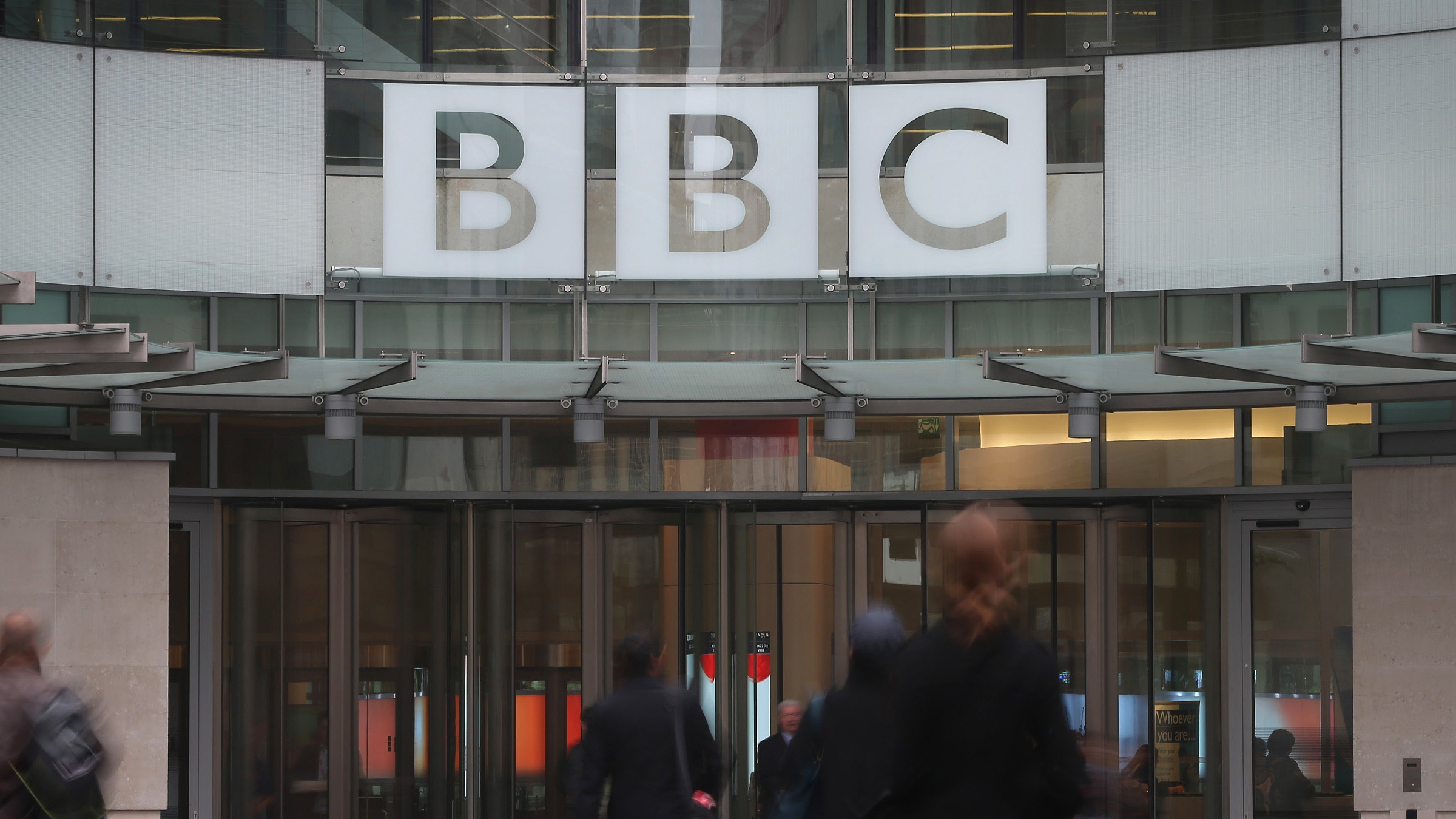Instant Opinion: the BBC cannot police ‘virtue-signalling’
Your guide to the best columns and commentary on Friday 30 October

A free daily email with the biggest news stories of the day – and the best features from TheWeek.com
You are now subscribed
Your newsletter sign-up was successful
The Week’s daily round-up highlights the five best opinion pieces from across the British and international media, with excerpts from each.
1. Nina Power in The Daily Telegraph
on restrictive strictness
The Week
Escape your echo chamber. Get the facts behind the news, plus analysis from multiple perspectives.

Sign up for The Week's Free Newsletters
From our morning news briefing to a weekly Good News Newsletter, get the best of The Week delivered directly to your inbox.
From our morning news briefing to a weekly Good News Newsletter, get the best of The Week delivered directly to your inbox.
‘Virtue-signalling’ can’t be policed, and the BBC is doomed if it tries
“Everybody should be allowed to express their opinion in private – except ‘privacy’ today paradoxically means potentially broadcasting your view to the whole world. The BBC is in an invidious position: by attempting to create the appearance of neutrality through coercion, it runs the risk of appearing more tyrannical than even the most fanatical social-justice warrior. The blurring of the boundaries of a life lived on and offline is something we all must come to terms with, but requesting employees request permission to attend protests, or banning online political speculation and commitments seems dangerously strict. Better to trust that people have good reasons for what they say and do, and let them speak freely – even if they’re simply saying things to show how ‘virtuous’ they would like you to think they are.”
2. Keith Kahn-Harris in The Guardian
on a long road ahead
A free daily email with the biggest news stories of the day – and the best features from TheWeek.com
An end to Labour’s antisemitism controversy seems as far away as ever
“So the publication of the EHRC report is not the end of this sorry period in the history of the Labour party. By their very nature, legal and institutionally focused documents of this kind cannot resolve political arguments over divisive phenomena such as antisemitism. [It] can sometimes be fought, marginalised and even suppressed through legal means. Individuals can be suspended and expelled. But it cannot be understood through legalistic and institutional research alone. Rather, this requires attention to deeper patterns in the culture. Sociologically, abuse of minority groups cannot always be traced back to explicit ideologies: it may be woven into the everyday realities of how people treat each other, or into the unspoken assumptions in an organisation about what counts as ‘normal’ behaviour.”
3. Marcus Raymond in Metro
on the problem with altruism
Communities shouldn’t be forced to step in to help when the government won’t
“Despite us having the sixth-largest economy in the world, charity has such an established, vital place in our culture and is responsible for crucial provision. People donating money and time want to do their bit and feel good about the change it contributes to when they do. But where basic societal functions are concerned, like the NHS being adequately funded and children being fed, the Government should be doing more so the public don’t have to. We have enough to worry about right now. If the Government is convinced they have the ‘right approach’ and free school meals is in hand, why aren’t they telling these organisations and kind souls that it isn’t their civic duty to help, and especially not in these circumstances? It’s almost like they know their intervention alone won’t be enough.”
4. Ron Suskind in The New York Times
on what happens next
The Day After Election Day
“None of these officials know what will happen in the future any better than the rest of us do. It is their job to fret over worst-case scenarios, and they’re damn good at it. I can’t know all their motives for wanting to speak to me, but one thing many of them share is a desire to make clear that the alarm bells heard across the country are ringing loudly inside the administration too, where there are public servants looking to avert conflict, at all costs. It is possible, of course, that this will be an Election Day much like all other Election Days. Even if it takes weeks or months before the result is known and fully certified, it could be a peaceful process, where all votes are reasonably counted, allowing those precious electors to be distributed based on a fair fight. The anxiety we’re feeling now could turn out to be a lot of fretting followed by nothing much, a political version of Y2K. Or not.”
5. Will Self in The New European
on giving up a simple pleasure
On moving on from music
“But about four years ago I realised that even this last redoubt of sound was under attack by… silence. I stopped playing music while I did routine desk work cooking and other domestic tasks. I no longer played it on the rare occasions that I drove. And I confess, I no longer took much of an interest in what was happening in the ‘world of music’ at all. All of this made me feel almost guilty when the pandemic struck and lights were switched off at clubs, pubs and concerts halls the length and breadth of the land. Was this, I wondered, a strange case of morphic resonance retroacting into the past? Had my preternaturally sensitive ears perhaps anticipated the gathering soundlessness – much as an audience senses it, and so falls suddenly silent – thereby enacting a sort of front-guard action so as to protect me from the sadness and disillusionment so many other have experienced, deprived of their musical balms and stimulants?”